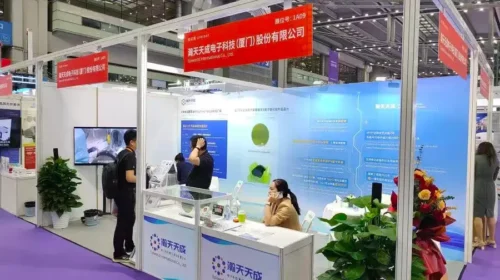Fenbi takes defensive action after steep share slide

The provider of exam preparation services is making a series of share buybacks in a bid to bolster confidence, as its business faces mounting competitive pressure
Key Takeaways:
- The company outlined plans to buy back up to 10% of its equity capital over a six-month period
- Fenbi executives increased their holdings and pledged to hold the shares for two years
By Lau Chi Hang
When China cracked down on the business of after-school tutoring a few years ago, investors switched their focus from academic institutes to providers of vocational education.
Fenbi Ltd. (2469.HK), which specializes in preparing candidates for the civil service exam and jobs in state industries, found itself basking in the spotlight. Prominent investors including Tencent, Hillhouse Capital, IDG Capital, Matrix Partners and DCP Capital all piled in, and the company – whose name means “chalk” in Chinese – went public in 2023.
The shares initially surged to HK$15 from a debut price of HK$9.9. But after a six-month lock-up expired, waves of selling pushed the price into a downward spiral.
Fenbi chairman Zhang Xiaolong accused private equity powerhouse Hillhouse of wantonly dumping his company’s shares. He talked up the education provider’s fundamentals, but the sell-off continued, pushing the stock to a record low of HK$2 in April. The price has since clawed back above HK$3 but is still languishing 60% below the IPO price.
Halting the slide
Aiming to take back the initiative, Fenbi executives loaded up on shares over the past month and then announced a buyback plan on Nov. 3. Fenbi said it would spend up to HK$200 million ($25.64 million) over a six-month period to purchase a maximum of 223 million shares, representing 10% of its issued equity capital.
In the run-up to the buyback announcement, chairman and CEO Zhang had bought 810,000 shares on Oct. 17 for HK$2.41 million, at an average price of around HK$2.97. He went on to scoop up another 230,000 shares on Oct. 28 and 800,000 on Oct. 30 worth a total of HK$2.88 million, priced between around HK$2.78 and HK2.80. By Nov. 4 another 300,000 shares had been added to his tally for HK$903,000.
Others joined in the support effort. Executive director Wei Liang and linked party Li Yong bought 350,000 Fenbi shares on Oct. 17 for nearly HK$1.04 million, paying around HK$2.96 per share.
As an added boost, Zhang and Wei expressed their confidence in the firm’s prospects and pledged in an Oct. 20 statement to refrain from selling their holdings for two years.
The concerted effort helped to put a floor under the share price. Fenbi shares broke through resistance at HK$3 on the news of the buyback plan, rising as much as 13% to HK$3.16 before softening to close with a 10% gain at HK$3.09.
Faltering performance
The support effort may have jolted the stock above HK$3 for now, but do the company fundamentals stack up?
Fenbi’s earnings figures reveal the toll of intensifying competition in the lucrative testing sector, as more graduates target stable civil service jobs or roles in state-owned enterprises in a tight economy.
The company’s turnover fell 7.7% to 2.79 billion yuan ($393,000) in 2024 from the prior year, although profits jumped 27% to 240 million yuan. Looking more closely at the numbers, the annual profit was nearly 40 million yuan less than the bottom line of 278 million yuan logged in the first half of 2024, meaning a loss was incurred in the second half.
In the first half of 2025, revenues slid 8.5% to 1.49 billion yuan, while net profit sank 18.4% to 227 million yuan. Fenbi blamed the drop on fierce rivalry in the market for entrance exam preparation, while competition also took a bite out of book sales and other businesses.
Fenbi launched a cost-cutting drive last year that became more pronounced in 2025. Administrative expenses fell 7.7% to 182 million yuan in the first half, while spending on marketing and sales slid 4.4% to 306 million yuan, and R&D shrank 0.3% to around 108 million yuan.
Limited scope of buybacks
In that context, can the buybacks deliver a significant and sustained boost to investor confidence? CEO Zhang and related parties bought a total of 2.56 million shares for around HK$7.22 million, a mere drop in the ocean of Fenbi’s issued share capital of nearly 2.24 billion shares. With their limited scope, the actions are unlikely to convince investors that those involved in the buybacks have complete confidence in the company.
In fact, less than 30% of Fenbi stock is in the hands of its controlling shareholders, below what is considered the benchmark for positive commitment. The stakeholders collectively own 552.3 million Fenbi shares, or 24.76% of the firm’s corporate equity.
Fenbi’s prospects may hinge on its adoption of AI as a teaching tool for the training and testing market. Since 2024, the company has launched a series of intelligent products including a virtual teaching assistant, Fenbi AI Teacher, and interview coaching services. It followed up in April this year with the launch of a ground-breaking AI-powered exam testing course for a mass audience. As of June 30, around 50,000 candidates had signed up, generating about 20 million yuan in revenue.
Nonetheless, the revenue from AI-powered products still represents a trickle in the company’s annual revenue stream of more than 1 billion yuan. Investors may want to adopt a wait-and-see approach towards Fenbi for now.
To subscribe to Bamboo Works weekly free newsletter, click here





